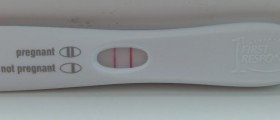
Folic acid is needed for a lot of different bodily functions, including creating red blood cells, repairing DNA, and preventing anemia. A deficiency in folate is bad for anyone. And because getting sufficient amounts of folate from food sources, folic acid is an excellent alternative for anyone who might lack the natural means of getting enough. In pregnancy and while trying to conceive, this is especially important. Why? Folic acid has been shown to be able to prevent birth defects neural tube defects such as spina bifida are extremely serious and have life-long consequences. A deficiency can also lead to miscarriages and stillbirths, according to some studies. And iron deficiency anemia has very much the same symptoms as folate deficiency anemia. All in all, these are some very solid reasons to take folic acid, along with the fact that it can actually increase your fertility.
This is true for men as well as women. So, how much folic acid should you take when you are trying to get pregnant, and up to what point of pregnancy? You can take 400 micrograms mcg (which is the same as 0.4 mg) all the time. When you are pregnant, up the dose to 600 or 800 mg and continue throughout the first trimester of your pregnancy. It is not really possible to overdose on folic acid, as you will just pee out the remainder, similar to Vitamin C.
















Your thoughts on this
Loading...